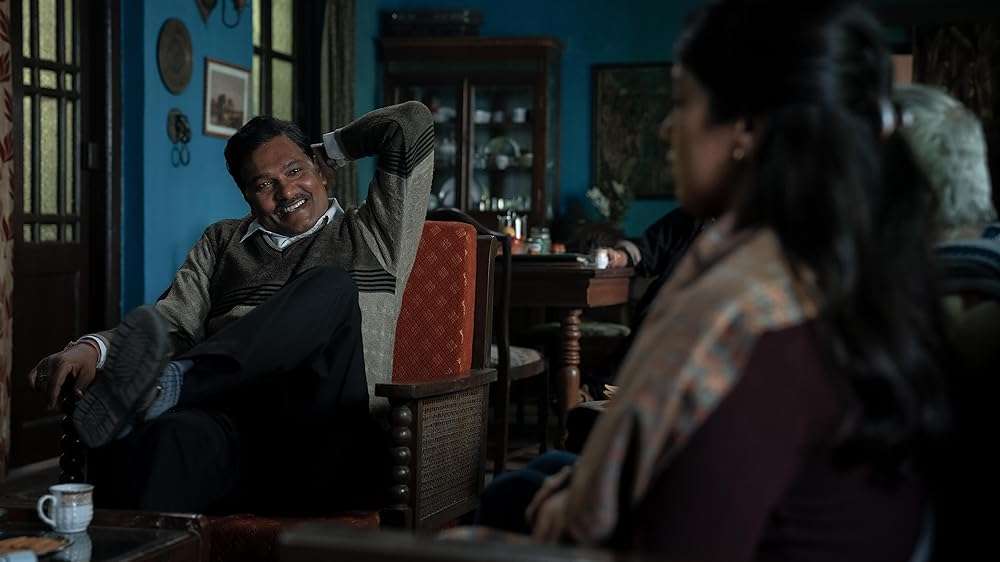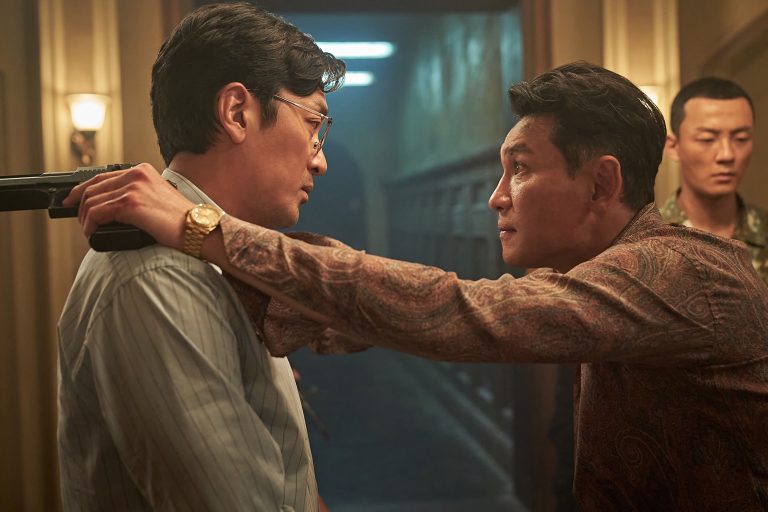Even after having seen, analyzed, and wafted in the environment created for the big screen, opening scenes like the one in “Bhakshak” decidedly made me uncomfortable. It wasn’t because director Pulkit was crass enough to show the action of the gendered violence; it was in the description of the said violent act through a callously dismissive vernacular. When the act of taking a woman’s virginity is described as an “inauguration” by the enabler (Sonu) of the perpetrator, as he is describing the violent act to the doctor, it is mighty uncomfortable because the event is too descriptive to be taken as a black comedy, even as the dialogues could be construed as such. That begs the question: if the topic being tackled in a film is of this harrowing and this weighty a sentiment, how much of an unvarnished depiction of those acts is enough?
“Bhakshak” is inspired by the Muzaffarnagar Shelter Home Rape Case, in which a former Bihar MLA, along with 11 others, was sentenced to life imprisonment for sexually assaulting several minor girls. The indictment occurred due to an audit of 110 shelter homes in Bihar, which exposed a racket involving the sexual abuse of several minor women. Director Pulkit and co-writer Jyotsna Nath use this true incident as an inspiration to craft the story of an independent, struggling journalist, Vaishali Singh, who begins looking into the story after she comes across an independent audit by NISS and how sexual abuse at a child shelter home in Munawwarpur has been meticulously described.
Vaishali’s contact, Gupta, gave her the audit report in secret and not to the police because no action had been taken on behalf of the MLA’s office or the police department. Vaishali is aided in her crusade by her colleague at “Koshish News,” Bhaskar (Sanjay Mishra), who works as comic relief in this film without teetering too far into overtly comical territory.
Process-oriented storytelling dealing with the nitty-gritty of an investigation can work very well if allowed to progress uninterrupted. For the most part, Vaishali and Bhaskar’s investigation into this case by questioning all the other NGOs and whether the girls from Munawwarpur shelter had been sent here is interesting even in its rote-ness, precisely because of how isolated and yet ensconced in protection that home is (a flag of the ruling party is very prominently displayed at the entrance of the shelter) and also because of how much red-tape and bureaucratic shielding is complemented by the hands-off approach towards most of the owners of the respective shelters. The movie takes a turn when Vaishali and Bhaskar meet one of the girls who had been hired to cook for the girls at the shelter.
Her interview leads to a flashback, where Pulkit depicts the harrowing and unsanitary conditions in which the girls were taken care of and the violence they were subjected to. The majority of these events, shot at nightfall with the yellow hues of the streetlights as well as the flickering bulbs inside the shelter, are edited like a thriller, with elements resembling a horror movie. The cost of depicting the violence, however, leads to the men at the shelter being depicted as cartoonishly evil.
One could argue, however, that this cartoonish evilness stems from the confidence to carry out sexual violence with impunity. But the cartoonishness of these characters is sharply contrasted with the violence being depicted via cigarette burns or scratches on the arms and legs. It’s harrowing not because this is anything new but because of how it is presented, and there are moments where it feels like Pulkit is teetering dangerously close to exploitative territory in its depiction, although he pulls it back at the last second.

But what “Bhakshak” truly excels at is depicting the difficulty that Vaishali and Bhaskar have to face in indicting the perpetrators. The bureaucracy, red tape, general dismissiveness of the patriarchy, and an alarming trend in humanity to ignore the sufferings of the world in favor of protecting their own behind closed doors. There are moments in the screenplay where elements that could have been correctly characterized as deus-ex machina in a lesser film (Sai Tamhankar as newly transferred SSP Jasmeet Gaur) also have their hands tied due to the mythical “system” that the middle-class strata of this country have unflinching trust in, and the people in authority have enough knowledge to bend that same system and navigate the crevices and loopholes of the law.
It also depicts the hardships that Vaishali experiences in running an independent organization while searching for validation amidst her own family (a microcosm of the patriarchy), both as a reporter and as an independent woman. These are appreciated garnishings of the personal backstories of the characters but ultimately feel rote and predictable. I did like how the screenplay utilizes one of the conflicts in her personal life and intermingles it within the plot, but for the most part, her familial storyline mostly feels like an unnecessary detour.
The chemistry Vaishali shares with Bhaskar is quite enjoyable, and Bhaskar (played with effortless charm by Sanjay Mishra) is the conscience and unwavering supporter of the crusade. Mishra’s comic timing is impeccable while delivering some of the uninspired comic dialogues with a low-key cadence that impacts highly in punctuating the bleakness. Aditya Shrivastava as Bansi Sahu, the primary antagonist of the film as the owner of the Munawwarpur Shelter, is a revelation as a deliciously evil character.
It is debatable whether his backstory as a magnate of a big newspaper holds any weight. He is clearly designed as an evil mirror for the underdog reportage by Vaishali, but Bansi doesn’t directly contribute to the hindrance; the twisty and slow nature of the bureaucracy is already enough. Thus the wrinkle in Bansi’s backstory feels unnecessary, considering that the “system” ultimately is the primary antagonist.
As Vaishali, Bhumi feels very comfortable in this role, keeping the cadence and tonality of her acting as low-key as she possibly could. There is a frazzled stubbornness to her that underlines Vaishali’s work ethic, even as she is fighting against a system that is determined not to let her succeed. However, “Bhakshak” takes an interesting swerve in the end to comment on the flaws of the narrative and, ultimately, the “underdog vs. the system” template of the story. It ends with Vaishali sitting in front of the screen, recording and talking to an audience, consequently breaking the fourth wall. It feels almost like a homage to the producer of this film, but unlike “Jawan,” there are no reaction shots to cut away from this speech.
The speech is extolled with a lilting cadence underlying the sarcasm carried through the speech, almost reminding you of Mark Antony inciting the mob to a revolution with his speech, every paragraph punctuated by “But Brutus is an honorable man,” and the line losing more and more of its impact. Here, she accentuates her speech with a similar line in a repeating pattern, but here, she is not out to incite a mob. Here she is, out to appeal to the vast sea of humanity, so connected by social media yet so disconnected.
The final speech is smart—almost too smart than the rest of the screenplay could afford—and even slyly undercuts the point of this film’s existence, and maybe it is nothing more than an encapsulation of the core themes of the film delivered as simplistically as possible. But sometimes, a monologue just works. If laced with sarcasm and yet humanist appeal, even more so.







![Let It Snow [2019] Netflix Review: This Holiday themed film can trigger the Christmassy feeling](https://79468c92.delivery.rocketcdn.me/wp-content/uploads/2019/11/let-it-snow-movie-review-2019-768x320.jpg)

